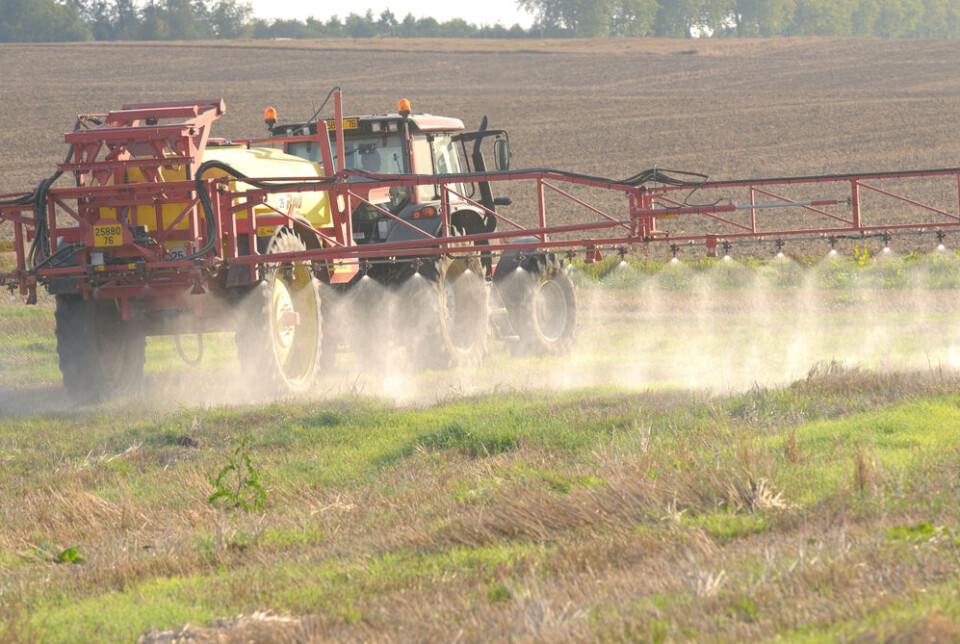-
Warnings issued over connecting to public WiFi networks in France
Lack of encryption and risk of connecting to ‘fake networks’ leave users at risk of hacking attempts
-
France impacted by EU approval for €3 tax on small parcels from outside the union
Tax could coincide with separate French fees for parcels says Finance Ministry
-
Winegrowers outraged by €0.01 bottle of wine in French supermarket
Lidl claims labelling error but local farmers’ union says it threatens local production
French minister calls new 10-year glyphosate authorisation ‘stupidity’
He called the EU’s decision ‘an environmental step backwards’

The French ecology minister has called the EU’s 10-year authorisation of the controversial herbicide glyphosate a ‘stupidity’, and reiterated that France is against the “environmental step backwards”.
Christophe Béchu commented on the authorisation - which was confirmed on November 16 - in an interview with FranceInter.
France abstained from the vote, the minister said, adding that “an abstention is the same as a vote against”. He said that France had abstained, as had Germany, because the countries were unable to “find an alternative position”.
“We did not manage to find enough allies, 17 countries voted in favour of the Commission's position and, including for diplomatic reasons, we voted with the Germans to ensure that we continue to find allies on this issue,” he said.
Mr Béchu called the Commission's position “an environmental step backwards”, and said that France is “opposed” to it.
He said that “personally”, he would have preferred for France to “vote against” rather than abstaining.
.@ChristopheBechu : "À titre personnel, j'aurais préféré que notre position [sur le prolongement de l'autorisation du glyphosate] prenne la forme d'un vote contre plutôt qu'une abstention. La position d'autoriser tous les usages pendant 10 ans est une dinguerie." #le69Inter pic.twitter.com/X7vXMXTOpd
— France Inter (@franceinter) November 17, 2023
Glyphosate bans continuing in France
Mr Béchu added that the vote would not change anything in France, and the country would “continue to ban usage of glyphosate and restrict its use”.
“Over the past few years, we are the country where the use of glyphosate has dropped the most: 27% compared to the period 2015-2017,” he said. “[France has] banned all use of glyphosate for individuals and for local groups.”
He added that the government was continuing to “work with farming professionals to, little by little, limit and ban [glyphosate] for any situation for which alternatives to this product exist”.
“France has banned all non-farming usage,” he said, adding that the product had been banned from sites including along SNCF railway lines, in cemeteries, and in riding centres.
“We are continuing, area by area, to ban this pesticide that is bad for your health,” he said.
Read more: French firm SNCF to use more natural glyphosate alternative
Read more: France bans pesticide use in more places, including private residences
Glyphosate is a controversial herbicide that has been linked to severe health problems including cancer, birth defects, and endocrine issues.
In October this year, it emerged that a French 16-year-old boy born with severe physical malformation was compensated more than €35,000 after a causal link was acknowledged to his mother’s exposure to the herbicide glyphosate while pregnant.
This was the first time that such a case had happened in France.
The government has debated if and how to ban glyphosate for farming in France, despite its growing unpopularity, with President Macron previously saying that a ban could not be introduced “overnight” as this would “kill our agriculture”.
Regulations exist on where pesticides and herbicides can be used - and how close to homes and businesses they can be - but environmentalists and anti-pesticide campaigners say these measures do not go far enough to protect people.
Related articles
99% of Brittany waterways found to have traces of pesticide
Can I still use a glyphosate weedkiller in my garden?
West France farms biggest users of controversial weedkiller
























